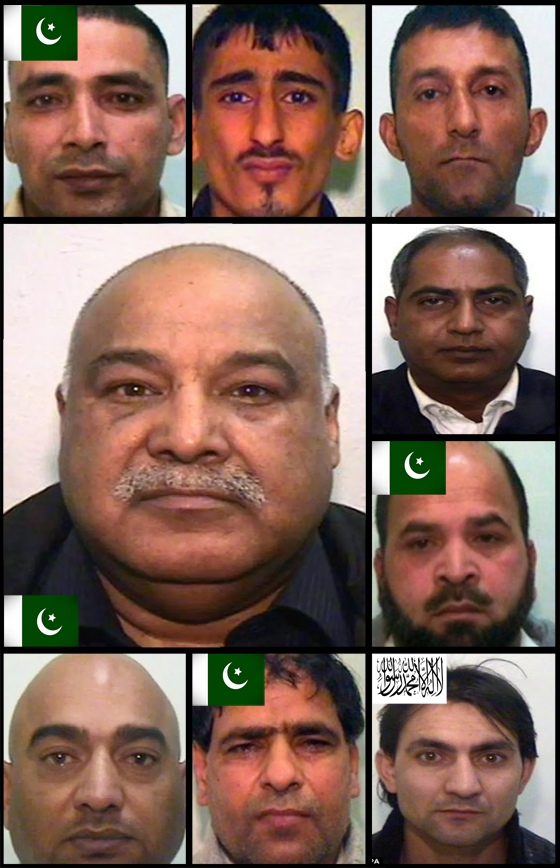
Sex Offenders Pictured are of a grooming gang mostly packed with Pakistani nationals that raped little children in Rochdale 2012 and not of the foreign nationals in Paris raping the women there.
Figures from Paris police headquarters said the crimes were largely committed at night, in tourist hotspots, and near places where drug deals happened
More than three quarters of rapes on the streets of Paris last year were committed by foreign nationals, according to shocking data from French authorities.
97 rapes were recorded in public spaces in France’s capital in 2023 – fewer than a third of which have been solved, local outlet Europe 1 reported.
Of the 97, 36 were arrested, 28 of whom were of foreign nationality – a staggering 77 per cent of those accused – while 30 cases were solved by the authorities.
Stats from Paris police headquarters said the crimes were largely committed at night, in tourist hotspots, and near “points de deal” – places where drug deals happened.
More shocking figures revealed that 20 rapists had already been known to the police, while four others had been on authorities’ radar for other sex offences.
Europe 1 said the crimes had been “mainly” committed by men, most of whom were addicted to drugs, homeless, or unemployed.
The number of crimes had risen by two per cent since 2022 – a near-constant rate of increase since 2018.
Reacting to the figures, Grégory Joron, the general secretary of police union Unite SGP Police-Force Ouvriere, said: “It’s still a rape every three days on Parisian soil and in public spaces.
“This poses a real question since it has been stable since almost 2018 and overall, we can clearly see that it is a phenomenon that we cannot extinguish.”
Joron drew attention to crime worries ahead of this year’s Olympic Games in the city; he said: “These are supposed to be places with a zero per cent crime rate, since we are expecting to welcome millions of tourists for the Olympic Games.
“But, for now, these are still places where, unfortunately, there are still a huge number of problems.
“After a certain hour, at night, there is unfortunately still a risk that a woman will be walking alone on her way home from an evening out or even from work.”
Authorities are attempting a large-scale crack-down ahead of the Olympics – last month, police introduced their “Place Nette XXL” operation, which, though mainly drug-focused, has much wider security implications.
The French Interior Minister, Gérald Darmanin had said at the time that “the fight against drugs is not only a fight for security; it is a fight for society”.
Alongside drugs, France has made moves to curb terrorist efforts over the last few months; in the wake of the Crocus City Hall attack in Moscow, Prime Minister Gabriel Attal announced an increase of his country’s terror threat level to “attack emergency”.
With such concerns in mind, the Olympics’ opening ceremony, slated to take place on the city’s River Seine, has already scaled back for security reasons.
A senior French interior ministry official said French President Emmanuel Macron had demanded halving the number of spectators from 600,000 following crowd control and security concerns, according to Politico.
The official said the “main threat” to the Games was “Islamist terrorism” – but conceded French intelligence had not yet identified specific plots, and groups like Isis and Al-Qaeda did not have the financial capacity to carry out attacks in France.